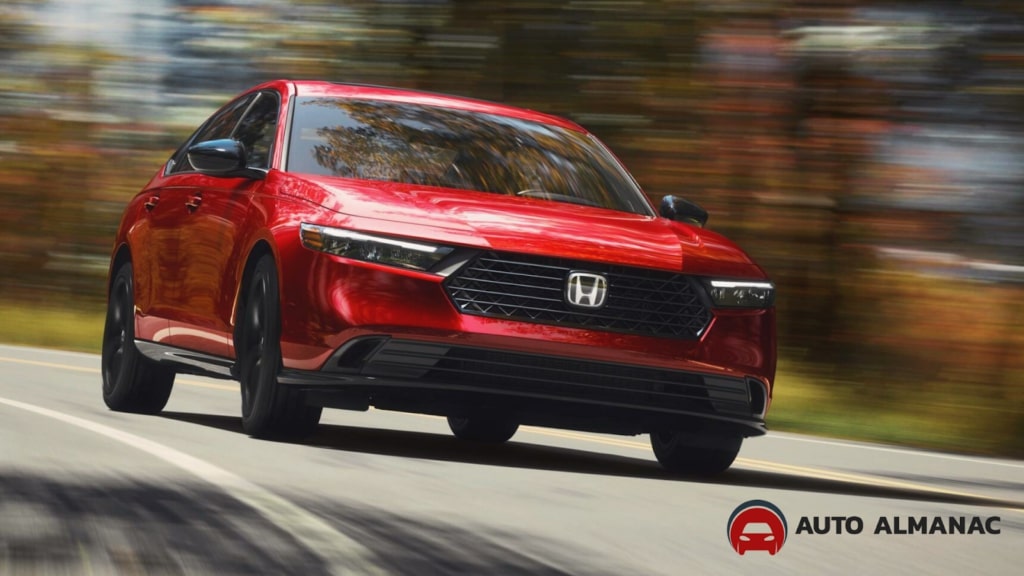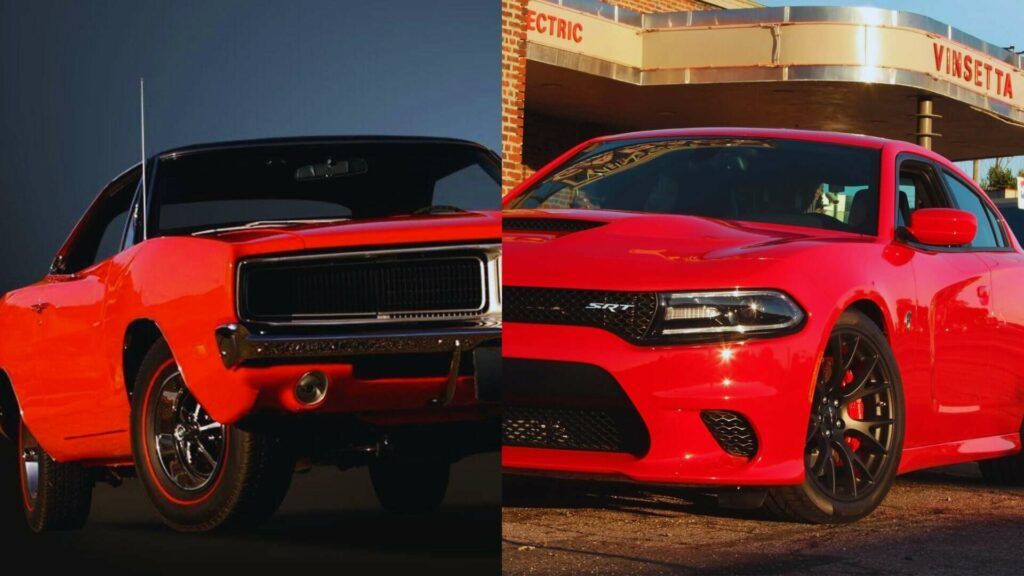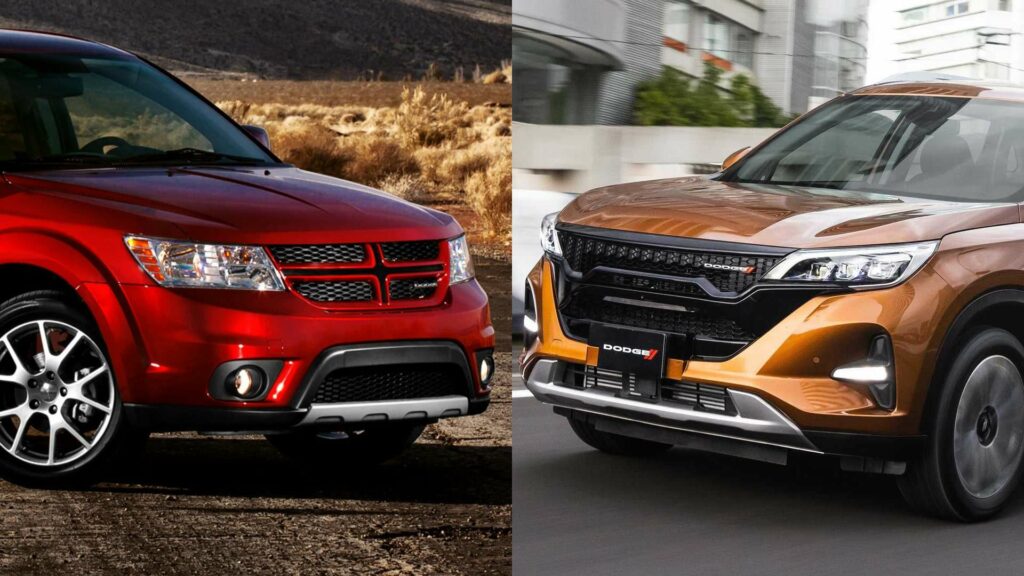As one of the most popular mid-size cars that ever came out of the land of the rising sun, the Honda Accord has been recognized for its reliable and dependable track record for decades.
But if you’ve stumbled upon this article, then you may be curious as to what type of gas or fuel such a vehicle can actually take.
Well, we’ve done our homework on everything there is to know fuel-wise about the Honda Accord, and that includes even its gas tank size and gas mileage.
So if you’re in the market for a Honda Accord and wouldn’t want to put the wrong type of fuel in, be sure to read this info-filled guide until the end!
What kind of gas does a Honda Accord take?
1998 to 2006 Honda Accord models can take 86-octane gasoline, while 2007 to 2023/present models can take 87-octane gasoline (Regular).
However, the use of premium 91-octane gasoline is also recommended for the newest 2023 models for optimum performance.
Compared to other vehicles that we usually write about, it’s actually a lot more simple to keep track of the Honda Accord’s gas type.
This is because all generations of the vehicle starting from 1998 are only ever going to require either 86 or 87-octane gasoline.

Even the new 2023 Honda Accord engines can take regular 87-octane gasoline, though if you ever wanted to extract every ounce of its performance, then switching to 91-octane fuel is recommended (not required).
Even having said that, we’ve still made it a point to list each of the Honda Accord’s engine options with their respective fuel requirements below.
Do take note that due to the limited info that we have on the official fuel requirements of older Honda Accord generations, we’ll only be covering those from the 6th generation (1998 onwards) at the earliest.
Honda Accord Fuel Requirements Based on Generation and Engine Option
6th-gen to 7th-gen Honda Accord models require at least 86-octane gasoline up until the 2006 model year, while 7th-gen 2007 models to 11th-gen models require 87-octane gasoline instead.
6th-Generation Honda Accord (1998 to 2002)

| Engine Option | Minimum Fuel Requirement |
| 2.3L F23A Inline-4 (I4) Non-VTEC (DX) | 86-Octane Gasoline or Higher |
| 2.3L F23A Inline-4 (I4) VTEC (LX/EX) | 86-Octane Gasoline or Higher |
| 3.0L J30A1 V6 VTEC | 86-Octane Gasoline or Higher |
Honda Accord models made from 1998 to 2002 are part of the 6th generation of the vehicle and came with three different engine options.
A 2.3-liter I4 engine, dubbed as either the F23A1, F23A4, or F23A5 depending on the country, came in both a VTEC and a non-VTEC option.
These two I4 engines were then followed by a 3-liter “J30A1” V6 that also came with VTEC (Variable Valve Timing and Lift Electronic Control).
All three of these engine options have been given the minimum fuel requirement of 86-octane gasoline. But with today’s fuel standards, it wouldn’t hurt to fill them up with 87-octane fuel or higher either.
7th-Generation Honda Accord (2003 to 2007)

| Engine Option | Minimum Fuel Requirement |
| 2.4L K24A4/A8 Inline-4 (I4) VTEC | 86-Octane Gasoline or Higher(87-Octane for 2007 Model) |
| 3.0L J30A4/A5 V6 VTEC | 86-Octane Gasoline or Higher(87-Octane for 2007 Model) |
| 3.0L JNA1 V6 i-VTEC Hybrid | 86-Octane Gasoline or Higher(87-Octane for 2007 Model) |
7th-generation Honda Accord models were the first to receive the venerable K-series of engines in the form of the K24A4 or K24A8, which is the base engine for this generation.
Such K-series engines are also found in other Honda vehicle models of this timeline, like the Honda CR-V, which we also have a dedicated gas-type article on.
The other two engine options were both 3-liter V6s, though the J30A4 or A5 just ran on gasoline while the JNA1 was a hybrid (gas engine + electric motor), making this also the first time that an Accord Hybrid was introduced.
These three engine options are specified to be capable of running on 86-octane gasoline until the 2006 model year. Otherwise, 2007 models have made the switch to an 87-octane requirement instead.
8th-Generation Honda Accord (2008 to 2012)

| Engine Option | Minimum Fuel Requirement |
| 2.4L K24Z2 Inline-4 (I4) i-VTEC(LX/LX-P Sedan) | 87-Octane Gasoline (Regular) |
| 2.4L K24Z3 Inline-4 (I4) i-VTEC(EX/EX-L Sedan or LX-S/EX/EX-L Coupe) | 87-Octane Gasoline (Regular) |
| 3.5L J35Z2 V6 VCM i-VTEC(Auto Sedan/Coupe) | 87-Octane Gasoline (Regular) |
| 3.5L J35Z3 V6 Non-VCM VTEC(Manual Sedan/Coupe) | 87-Octane Gasoline (Regular) |
The 8th-gen Honda Accord had its model year run from 2008 to 2012 while continuing the 87-octane fuel requirement trend of the previous generation’s final model year.
This generation has also been given its fair share of K-series I4 engines and J-series V6 engines depending on the specific trim that you opt for.
The first two engines were both 2.4-liter I4 engines that can be found on the specific sedan and coupe models listed above, and there are differences to be taken note of in their engine codes and power outputs.
The K24Z2 that powered the LX and LX-P sedans came with 177bhp, while the more powerful K24Z3 variant found in the EX, EX-L, and LX-S trims came with 190bhp instead.
9th-Generation Honda Accord (2013 to 2017)

| Engine Option | Minimum Fuel Requirement |
| 2.4L K24W Inline-4 (I4) i-VTEC | 87-Octane Gasoline (Regular) |
| 3.5L J35Y1 V6 VTEC(Auto Sedan/Coupe) | 87-Octane Gasoline (Regular) |
| 3.5L J35Y2 V6 VTEC(Manual Coupe) | 87-Octane Gasoline (Regular) |
| 2.0L LFA1 Inline-4 (I4) i-VTEC Hybrid | 87-Octane Gasoline (Regular) |
| 2.0L LFA-MF8 Inline-4 (I4) i-VTEC PHEV(California/New York Release) | 87-Octane Gasoline (Regular) |
Back in 2012, Honda pulled the veil off the then-new 9th-generation Accord for the 2013 model year with a mix of both tried-and-true gasoline engines and newer hybrid engines.
The base 2.4-liter I4 engine for this generation was another K-series engine in the form of the K24W equipped with Honda’s newer i-VTEC technology.
Two 3-liter J-series V6 engines can also be found in this generation. Despite making the exact same power output, they possess different engine codes that denote their pairing with either the manual (J35Y1) or automatic transmission models (J35Y2).
As for the hybrid and plug-in hybrid (PHEV) models, both are powered by LF-series 2-liter I4 engines with i-VTEC technology.
However, the US-released PHEV model was only available in select California and New York dealerships.
Eventually, only 1039 Honda Accord PHEV units were sold in the states, making them a bit hard to come by.
Just like the previous generation, all of the 9th-gen Honda Accord’s engine options are capable of running on regular 87-octane gasoline.
10th-Generation Honda Accord (2018 to 2022)

| Engine Option | Minimum Fuel Requirement |
| 1.5L L15BE/BG Inline-4 (I4) Turbo | 87-Octane Gasoline (Regular) |
| 2.0L K20C4 Inline-4 (I4) Turbo | 87-Octane Gasoline (Regular) |
| 2.0L LFA1/LFB1 Inline-4 (I4) i-VTEC Hybrid | 87-Octane Gasoline (Regular) |
The introduction of the 10th-gen Honda Accord in 2017 for the 2018 model year completely revamped its engine lineup with smaller yet more technologically advanced engines.
The base engine of the 10th-gen Accord is a turbocharged 1.5-liter L-series I4 that works just fine with regular 87-octane gas like the older 2.4-liter engine that it replaced.
A turbocharged 2-liter K-series I4, coded as the “K20C4”, is also available. Not only did it replace the previous-gen V6 option, but it’s also derived from the K20C1 engine that powers the 10th-gen Honda Civic Type R FK8.
Just like the Civic Type R’s K20C1, the tamer K20C4 on the 10th-gen Accord can also run on regular 87-octane gasoline.
The fourth and final engine option for this generation is the 2-liter LF-series I4 i-VTEC Hybrid, and just like the rest of the lineup, it’s also specified to run on 87-octane gasoline.
11th-Generation Honda Accord (2023/Present)

| Engine Option | Minimum Fuel Requirement |
| 1.5L L15BE Inline-4 (I4) Turbo (LX/EX) | 87-Octane Gasoline (Regular)(91-Octane Recommended) |
| 2.0L Inline-4 (I4) Hybrid (Sport/Sport-L/EX-L/Touring) | 87-Octane Gasoline (Regular)(91-Octane Recommended) |
The 11th-generation Honda Accord is the newest iteration of the popular mid-size car and comes with two engine options for the 2023 model year.
Interested customers are given choices of either a turbocharged 1.5-liter L-series I4 engine for the LX and EX trims, or a 2-liter I4 hybrid engine exclusive for the Sport, Sport-L, EX-L, and Touring trims.
Both the 1.5-liter and 2-liter engine options are capable of running on 87-octane gasoline, though it’s also recommended to switch to 91-octane gasoline for the most optimum performance.
Types of Gasoline/Fuel That Can Be Used in a Honda Accord
The Honda Accord is compatible with fuel such as reformulated gasoline (RFG), TOP TIER detergent gasoline, and E-10/E-15 blends (9th-gen models and newer).
Reformulated Gasoline (RFG)
As with most vehicles on the road today, the Honda Accord is compatible with reformulated gasoline or RFG, which is a more modern and cleaner-burning type of fuel.
Reformulated gasoline is considered a more environmentally-friendly mixture of gasoline due to its use of lesser toxic ingredients that are known to contribute to the formation of ozone and other air toxins.
This makes reformulated gasoline highly recommended in areas that are known to have higher concentrations of air pollution and smog.
According to the EPA, reformulated gasoline accounts for about 30% of all gasoline sold in the states. More than likely, you’re going to find reformulated gasoline sold even at your local pumps.
TOP TIER Detergent Gasoline

We’ve talked about the use of TOP TIER gasoline on other vehicles a bunch of times already, and we’re more than willing to talk about its compatibility yet again with the Honda Accord.
Honda alongside other major car manufacturers recommends the use of TOP TIER gasoline because of its high-quality detergent additives.
The TOP TIER formulation uses a higher level of detergency when compared to non-TOP TIER fuel, making it very effective and safe in preventing the accumulation of deposits or debris inside your vehicle’s engine.
First developed in 2004, TOP TIER gasoline has been adopted by over 60 different fuel brands across North America ever since, making it quite the popular choice when you go in for a refill.
Despite the Honda Accord not having a diesel engine option, it’s still worth mentioning that there’s also TOP TIER diesel fuel, just in case you’re also looking into other diesel vehicles.
You can find either TOP TIER detergent gasoline or TOP TIER diesel by looking at their respective labels at your local gas station pumps, as shown below.

Up to 10 or 15% Ethanol Blends (E-10/E-15) (Depending on Generation)

Several newer generations of the Honda Accord are compatible with certain levels of ethanol in gasoline, so be sure to take note of them.
Starting from the 6th-gen Accord all the way to the 9th, all engine options are capable of using gasoline with as much as 10% ethanol, or “E-10”.
10th and 11th-gen/present Accord models, on the other hand, can already take up to 15% ethanol blended in gasoline, or “E-15”.
Make sure to not go past these ethanol percentages specified for the Honda Accord or any other non-flex-fuel vehicle, which is usually equipped with a black fuel cap labeled with its fuel limitations.

Types of Gasoline/Fuel to Avoid for the Honda Accord
Avoid filling up the Honda Accord with gasoline containing MMT, E-85/Flex-Fuel or any blend above 15% ethanol content, and diesel or biodiesel fuel.
Gasoline Containing MMT (Methylcyclopentadienyl Manganese Tricarbonyl)

Gasoline containing MMT is not to be used for the Honda Accord due to its production of toxic emissions and its tendency to damage vehicles’ spark plugs and other emissions system components.
MMT is primarily used as an octane booster or enhancer to reduce the chances of engine knock. However, as we’ve mentioned above, the trade-off that it offers is not exactly worth it.
Thus, MMT has since been frowned upon by the majority of gasoline brands and car manufacturers.
This, combined with the downright destructive effects of MMT on both your vehicle and the environment, makes it a no-brainer to not have a single drop of it inside your Honda Accord’s gas tank.
E-85/Flex-Fuel and Ethanol Blends Higher than 15%

As of 2023, there is not a single vehicle released by Honda that comes with Flex-Fuel or E-85 capability from the factory.
This tells us that any sort of fuel that contains more than 15% of ethanol content is completely off-limits for the Honda Accord, let alone E-85, which can have up to 85% of it.
The use of gasoline with higher ethanol percentages than what your vehicle is designed for can corrode various internal components in your engine and fuel system.
The reason for this is that ethanol is a type of oxygenate that tends to absorb or attract water, which explains its corrosive nature inside an engine that’s full of metal parts.
With that said, it’s also not hard to figure out if any kind of vehicle is flex-fuel or E-85 capable, as it will come with a yellow fuel cap with the “E-85” label.

Diesel or Biodiesel

Since the Honda Accord does not come with a diesel engine option, at least for the North American market, it would be a newbie mistake to accidentally fill it up with diesel or biodiesel.
This is assuming that you could even get the nozzle to fit in your gasoline car’s fuel filler, as diesel nozzles are designed to be bigger than gasoline/petrol nozzles.
Now if that wasn’t obvious enough, diesel and biodiesel fuel pumps are usually green and appropriately labeled “diesel” or “Biodiesel/B20”.
Should you accidentally put diesel fuel in a gasoline engine anyway, it will end up clogging various fuel system components such as the fuel filter and fuel injector.
This is because diesel is denser and thicker than gasoline, so a gasoline engine’s fuel system will not be able to move it properly, resulting in the buildup of thicker deposits and the engine seizing.
Why do I hear a knocking sound from the engine after refueling?
If you hear a knocking sound from your engine after refueling, then you may have put in the wrong fuel, or the fuel is contaminated.
Other issues like incorrect air-fuel ratio or ignition timing can also be to blame for the knocking sound, so make sure to get your car properly checked by a mechanic.
What will happen if I use the wrong type of gas?
Using the wrong gas type, such as using gasoline with too low of an octane rating for what your vehicle needs, can result in engine knock, reduced engine performance, and damage to the engine internals.
Does the Honda Accord get good gas mileage?
The Honda Accord gets EPA-estimated gas mileages of 30 mpg (city), 38 mpg (highway), and 32 mpg (combined), making it have impressive gas mileage even for its non-hybrid engine option.
Honda Accord Gas Mileage Per Generation
The Honda Accord can achieve a combined gas mileage of 21 to 33 mpg depending on the generation.
The Honda Accord Hybrid can achieve a combined gas mileage of 25 to 48 mpg, while the Accord Plug-In Hybrid (PHEV) can achieve 46 mpg (gas only) and 115 mpge (gas+electric).
As an additional note, the highest and lowest combined mpg values we’ve gathered below are based on which model year of that specific engine achieved the highest and lowest mpg on average.
For instance, the 1st-gen Accord’s manual 2.3-liter engine gets 25 mpg for the 2002 model year, but otherwise only gets 23 mpg for the 2000 model year.
6th-Generation Honda Accord Gas Mileage (1998 to 2002)
| Engine Option | Lowest Combined MPG | Highest Combined MPG |
| 2.3L F23A Inline-4 (I4)(5-Speed Manual) | 23 | 25 |
| 2.3L F23A Inline-4 (I4)(4-Speed Automatic) | 22 | 23 |
| 3.0L J30A1 V6 VTEC(4-Speed Automatic only) | 21 | 21 |
7th-Generation Honda Accord Gas Mileage (2003 to 2007)
| Engine Option | Lowest Combined MPG | Highest Combined MPG |
| 2.4L K24A4/A8 Inline-4 (I4) VTEC | 24 | 26 |
| 3.0L J30A4/A5 V6 VTEC | 21 | 22 |
| 3.0L JNA1 V6 i-VTEC Hybrid | 25 | 28 |
8th-Generation Honda Accord Gas Mileage (2008 to 2012)
| Engine Option | Lowest Combined MPG | Highest Combined MPG |
| 2.4L K24Z2 Inline-4 (I4) i-VTEC(5-Speed Manual) | 25 | 27 |
| 2.4L K24Z2 Inline-4 (I4) i-VTEC(5-Speed Automatic) | 24 | 26 |
| 3.5L J35Z2 V6 VCM i-VTEC(5-Speed Automatic) | 22 | 23 |
| 3.5L J35Z3 V6 Non-VCM VTEC(6-Speed Manual) | 20 | 21 |
9th-Generation Honda Accord Gas Mileage (2013 to 2017)
| Engine Option | Lowest Combined MPG | Highest Combined MPG |
| 2.4L K24W Inline-4 (I4) i-VTEC(AV-S7 Automatic) | 29 | 29 |
| 2.4L K24W Inline-4 (I4) i-VTEC (CVT) | 30 | 30 |
| 3.5L J35Y1 V6 VTEC(S6 Automatic) | 24 | 25 |
| 3.5L J35Y2 V6 VTEC(6-Speed Manual) | 21 | 21 |
| 2.0L LFA1 Inline-4 (I4) i-VTEC Hybrid | 47 | 48 |
| 2.0L LFA-MF8 Inline-4 (I4) i-VTEC PHEV(Gasoline Only) | 46 | |
| 2.0L LFA-MF8 Inline-4 (I4) i-VTEC PHEV(Gas + Electric) | 115 (MPGe) | |
10th-Generation Honda Accord Gas Mileage (2018 to 2022)
| Engine Option | Lowest Combined MPG | Highest Combined MPG |
| 1.5L L15BE/BG Inline-4 (I4) Turbo(6-Speed Manual) | 30 | 30 |
| 1.5L L15BE/BG Inline-4 (I4) Turbo(CVT) | 33 | 33 |
| 1.5L L15BE/BG Inline-4 (I4) Turbo(AV-S7 Automatic) | 31 | 32 |
| 2.0L K20C4 Inline-4 (I4) Turbo(6-Speed Manual) | 26 | 26 |
| 2.0L K20C4 Inline-4 (I4) Turbo(10-Speed/S10 Automatic) | 26 | 27 |
| 2.0L LFA1/LFB1 Inline-4 (I4) i-VTEC Hybrid (CVT) | 47 | 48 |
| 2.0L LFA1/LFB1 Inline-4 (I4) i-VTEC Hybrid (Sport/Touring) (CVT) | 43 | 43 |
11th-Generation Honda Accord Gas Mileage (2023/Present)
| Engine Option | Lowest Combined MPG | Highest Combined MPG |
| 1.5L L15BE Inline-4 (I4) Turbo (CVT) | 32 | 32 |
| 2.0L Inline-4 (I4) Hybrid (CVT) | 48 | 48 |
| 2.0L Inline-4 (I4) Hybrid (Sport/Touring)(CVT) | 44 | 44 |
What is the Honda Accord’s gas tank size/capacity?
1998 to 2007 Honda Accords have a gas tank size of 17.1 gal (64.7 l), while 2008 to 2012 models have 18.5 gal (70 l).
2013 to 2017 Honda Accords have a gas tank size of 17.2 gal (65.1 l), while 2018 to 2023/present models have 14.8 gal (56 l), and hybrid models have 12.8 to 15.8 gal (48.5 to 59.8 l).
| Honda AccordGeneration/Model Years | Engine/Trim | Gas Tank Size/Capacity (US Gallon/Liter) |
| 6th Generation (1998 to 2002) | All DX Trims (2.3L I4) | 17.1 gal (64.7 l) |
| All LX Trims (I4 and V6) | 17.1 gal (64.7 l) | |
| All EX Trims (I4 and V6) | 17.1 gal (64.7 l) | |
| All SE Trims (2.3L I4) | 17.1 gal (64.7 l) | |
| Value Package (2.3L I4) | 17.1 gal (64.7 l) | |
| 7th Generation (2003 to 2007) | 2.4L I4 (DX/EX/LX) | 17.1 gal (64.7 l) |
| 2.4L I4 (EX-L) | 17.1 gal (64.7 l) | |
| 2.4L I4 (Value Package) | 17.1 gal (64.7 l) | |
| 2.4L I4 (PZEV Models) | 17.1 gal (64.7 l) | |
| 3.0L V6 (EX/EX-L/LX) | 17.1 gal (64.7 l) | |
| 3.0L V6 Hybrid | 17.1 gal (64.7 l) | |
| 8th Generation (2008 to 2012) | 2.4L I4 (LX/LX-S/LX-P) | 18.5 gal (70 l) |
| 2.4L I4 (EX/EX-L) | 18.5 gal (70 l) | |
| 2.4L I4 (SE) | 18.5 gal (70 l) | |
| 3.5L V6 (EX/EX-L) | 18.5 gal (70 l) | |
| 9th Generation (2013 to 2017) | 2.4L I4(LX/LX-S/EX/EX-L) | 17.2 gal (65.1 l) |
| 2.4L I4 (Sport) | 17.2 gal (65.1 l) | |
| 3.5L V6 (EX-L/Touring) | 17.2 gal (65.1 l) | |
| 2.0L I4 Hybrid (Base/EX-L/Touring) | 15.8 gal (59.8 l) | |
| 10th Generation (2018 to 2022) | 1.5L I4 Turbo (EX/EX-L/LX) | 14.8 gal (56 l) |
| 1.5L I4 Turbo (Sport/Touring) | 14.8 gal (56 l) | |
| 1.5L I4 Turbo(Sport Special Edition) | 14.8 gal (56 l) | |
| 2.0L I4 Turbo (EX-L/Sport/Touring) | 14.8 gal (56 l) | |
| 2.0L I4 Hybrid(Base/EX/EX-L/Touring) | 12.8 gal (48.5 l) | |
| 11th Generation (2023/Present) | 1.5L I4 Turbo (LX/EX) | 14.8 gal (56 l) |
| 2.0L I4 Hybrid(Sport/Sport-L/EX-L/Touring) | 12.8 gal (48.5 l) |
How much does it cost to fill up a Honda Accord?
It will cost $43.6 to $63 to fill up a Honda Accord with a gas tank size/capacity of 12.8 to 18.5 US gallons (48.5 to 70 liters) at the current US average regular gas price of $3.405/gallon.




